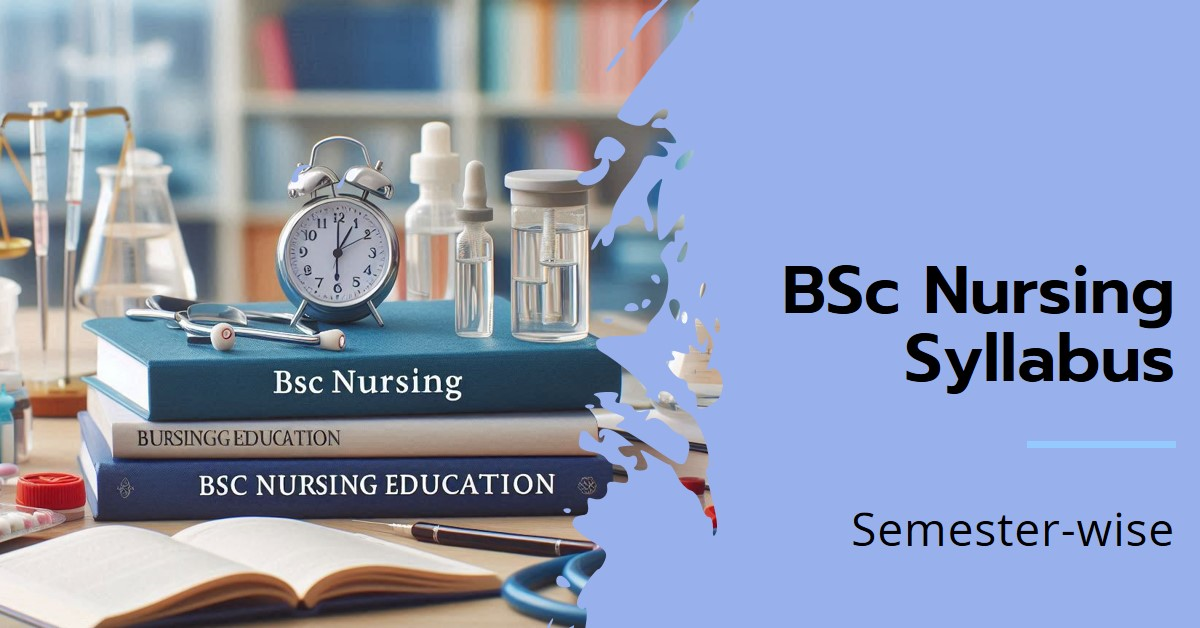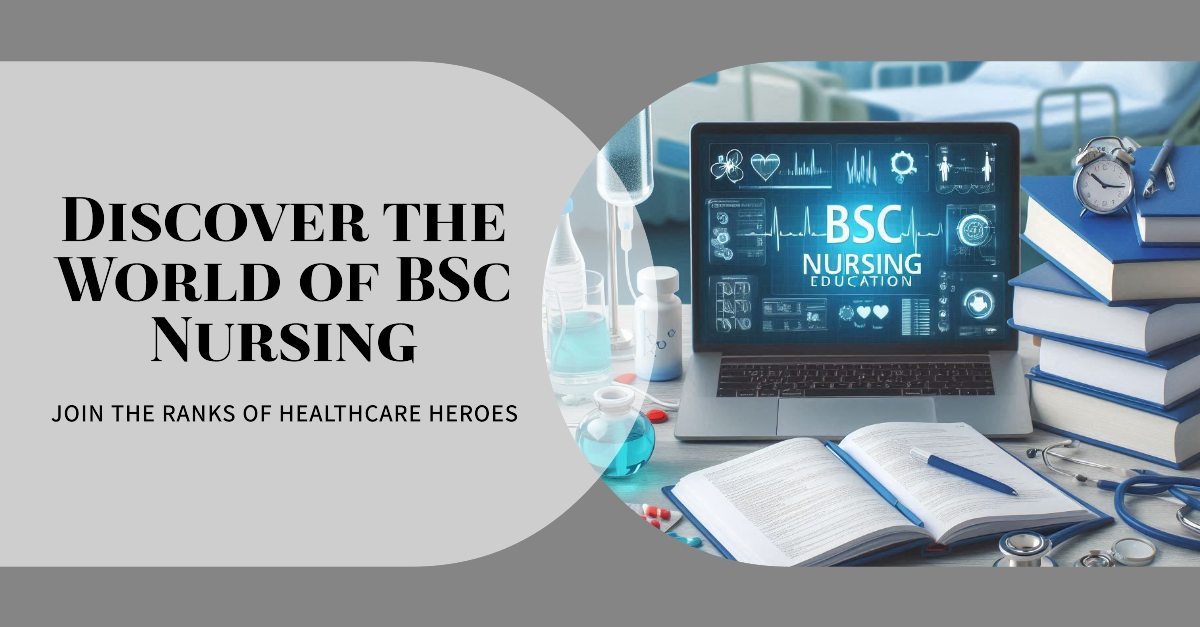A general nursing and midwifery (GNM) is a specialized nursing professional trained to provide comprehensive care to women during pregnancy, childbirth, and the postpartum period.
Here’s an overview of the career path, responsibilities, education, and skills required for a GNM.
Education and Training for General Nursing and Midwifery
The GNM course is designed to train nursing professionals in providing comprehensive care to women during pregnancy, childbirth, and postpartum.
Duration
- Generally, the GNM course lasts 3 years, though this may vary by institution.
Eligibility Criteria
- Educational Qualification: Candidates typically need a high school diploma or equivalent, with a focus on subjects like biology and chemistry.
- Age Limit: Usually, candidates must be between 17 and 35 years old.
Curriculum
- Fundamentals of Nursing: Basic nursing principles and practices.
- Midwifery: Focused training on prenatal, labor, delivery, and postpartum care.
- Maternal and Child Health: Understanding health issues related to mothers and children.
- Pharmacology: Study of medications used in maternity care.
- Psychology and Sociology: Understanding emotional and social factors in healthcare.
- Community Health Nursing: Engagement in community health programs.
Clinical Training
- Hands-on training in hospitals, birthing centers, and community health settings under the supervision of experienced professionals.
Certification
- Upon completion, graduates may need to pass a national or regional certification exam to practice as a certified nurse-midwife.
Skills Developed
- Clinical skills in maternity care.
- Effective communication and patient support.
- Critical thinking and decision-making in high-pressure situations.
Roles and Responsibilities of a General Nurse-Midwife
1. Prenatal Care
- Conduct regular check-ups and screenings to monitor maternal and fetal health.
- Educate expectant mothers on pregnancy-related topics, nutrition, and wellness.
2. Labor and Delivery
- Assist during labor by providing emotional support, pain management, and necessary medical interventions.
- Monitor fetal heart rates and maternal vital signs throughout the birthing process.
3. Postpartum Care
- Provide care and education to new mothers regarding recovery, infant care, and breastfeeding.
- Assess the physical and emotional health of mothers after childbirth.
4. Family Planning
- Offer counseling on reproductive health, contraception options, and family planning methods.
- Support individuals and couples in making informed decisions about their reproductive health.
5. Health Education
- Educate families about health issues, nutrition, and wellness during and after pregnancy.
- Conduct workshops and community outreach programs focused on maternal and child health.
6. Patient Advocacy
- Advocate for the needs and preferences of patients in their care plans.
- Ensure that patients have access to necessary resources and support services.
7. Record Keeping and Documentation
- Maintain accurate and up-to-date medical records for all patients.
- Document assessments, interventions, and outcomes in compliance with healthcare regulations.
8. Collaboration with Healthcare Teams
- Work collaboratively with obstetricians, pediatricians, and other healthcare professionals to provide comprehensive care.
- Participate in multidisciplinary team meetings to discuss patient care strategies.
9. Emergency Care
- Respond effectively to emergencies during labor and delivery.
- Recognize complications and initiate appropriate interventions when necessary.
10. Continuous Professional Development
- Stay updated on best practices, new research, and advancements in midwifery and maternal health.
- Engage in continuing education and professional training.
General Nursing and Midwifery Skills Required
1. Clinical Skills
- Proficiency in medical procedures related to maternity and neonatal care.
- Ability to conduct health assessments and monitor vital signs.
- Competence in administering medications and managing IV therapy.
2. Midwifery Skills
- Expertise in prenatal examinations and screenings.
- Skill in providing support during labor and delivery, including pain management techniques.
- Knowledge of postpartum care for both mothers and newborns.
3. Communication Skills
- Strong verbal and written communication skills for patient education and documentation.
- Ability to listen empathetically to patients and families, addressing their concerns.
- Skills in providing clear, understandable information about health and wellness.
4. Critical Thinking
- Ability to assess situations quickly and make informed decisions in high-pressure environments.
- Skill in evaluating patient conditions and recognizing emergencies.
5. Emotional Intelligence
- Capacity to handle emotional situations with compassion and understanding.
- Ability to provide emotional support to patients and families, especially during challenging times.
6. Teamwork and Collaboration
- Strong ability to work within a multidisciplinary team, coordinating care with other healthcare professionals.
- Flexibility in adapting to team dynamics and roles.
7. Health Education
- Skills in educating families on prenatal care, infant care, breastfeeding, and family planning.
- Ability to promote wellness and preventive care practices.
8. Cultural Competence
- Understanding and respecting diverse cultural beliefs and practices related to childbirth and healthcare.
- Ability to provide care that is sensitive to the cultural needs of patients.
9. Organizational Skills
- Effective time management and prioritization skills to handle multiple patients and tasks.
- Attention to detail in documentation and care planning.
10. Adaptability
- Ability to adapt to changing circumstances, patient needs, and healthcare environments.
- Openness to new practices and ongoing education in the field.
Work Settings for General Nurse-Midwives
1. Hospitals
- Labor and Delivery Units: Providing care during childbirth, monitoring maternal and fetal health.
- Postpartum Wards: Supporting new mothers in recovery and infant care.
2. Birthing Centers
- Offering a home-like environment for childbirth, focusing on natural birth experiences with personalized care.
3. Private Practices
- Working in small clinics or practices alongside obstetricians or independently, providing comprehensive prenatal and postpartum care.
4. Community Health Centers
- Engaging in outreach programs, focusing on maternal health education and providing care to underserved populations.
5. Home Health Care
- Visiting patients in their homes to provide prenatal and postpartum support, education, and care.
6. Public Health Agencies
- Working on initiatives related to maternal and child health, advocating for policies and programs that promote health in the community.
7. Educational Institutions
- Teaching nursing and midwifery students, providing clinical training, and contributing to academic programs.
8. Research and Development
- Involvement in clinical research studies focusing on maternal and infant health, contributing to advancements in midwifery practices.
Job Outlook and Opportunities for General Nurse-Midwives
1. Growing Demand
- The demand for nurse-midwives is expected to increase significantly due to a rising emphasis on personalized maternity care and a growing preference for midwifery services.
- An increase in the number of births and the emphasis on preventive care further drive this demand.
2. Employment Growth
- The Bureau of Labor Statistics (BLS) projects strong employment growth for nurse-midwives, with a rate much faster than the average for all occupations.
- As healthcare systems evolve to provide more comprehensive and family-centered care, the role of nurse-midwives becomes increasingly vital.
3. Diverse Career Paths
- GNMs can work in various settings, including hospitals, birthing centers, private practices, and community health organizations.
- Opportunities exist for specialization in areas such as high-risk pregnancies, reproductive health, and family planning.
4. Potential for Leadership Roles
- With experience, nurse-midwives can advance to leadership positions, such as clinical managers or directors of maternity services.
- Opportunities for involvement in policy-making and advocacy for maternal health at local and national levels are also available.
5. Higher Earning Potential
- The average annual salary for nurse-midwives typically ranges from $3,000 to $120,000, depending on factors like experience, location, and work setting.
- Additional benefits and bonuses may also be offered, particularly in hospital settings.
6. Continuing Education and Certification
- Many GNMs pursue further education, such as obtaining a Master’s degree or Doctorate in Nursing Practice (DNP) to enhance their skills and qualifications.
- Certification from recognized midwifery organizations can further improve job prospects and opportunities for advancement.
Challenges Faced by General Nurse-Midwives
1. Work Hours
- Irregular Shifts: GNMs often work on-call hours, which can lead to unpredictable schedules and the need to be available during nights and weekends.
- Long Hours: The demands of labor and delivery can result in extended shifts, leading to fatigue.
2. Emotional Strain
- High-Stress Situations: Handling both joyful births and difficult scenarios, such as complications or loss, can take an emotional toll.
- Compassion Fatigue: Continuous exposure to high-stress environments may lead to burnout and emotional exhaustion.
3. Regulatory Environment
- Keeping Up with Changes: GNMs must stay updated on evolving healthcare policies, regulations, and best practices in maternal care.
- Documentation Requirements: Maintaining thorough and accurate records to comply with legal and regulatory standards can be time-consuming.
4. Patient Diversity
- Cultural Sensitivity: Providing care that is respectful of diverse cultural beliefs and practices can be challenging, requiring GNMs to adapt their approaches.
- Language Barriers: Communicating effectively with patients who speak different languages can pose challenges in delivering quality care.
5. Resource Limitations
- Access to Care: In some settings, especially in rural or underserved areas, GNMs may face challenges related to limited resources or healthcare access for patients.
- Staffing Shortages: Working in environments with insufficient staffing can lead to increased workload and stress.
6. Interdisciplinary Collaboration
- Team Dynamics: Navigating relationships with other healthcare professionals and ensuring effective communication can be complex, especially in high-stress situations.
- Conflict Resolution: Disagreements with colleagues about care approaches may arise, necessitating strong interpersonal skills.
7. Physical Demands
- Physical Labor: The role often requires physical stamina, as GNMs may be on their feet for long periods and may need to assist with lifting patients.
Registered Nurse (RN) and the meaning of RN?
FAQ-





One thought on “General Nursing and Midwifery Course and Career Details”